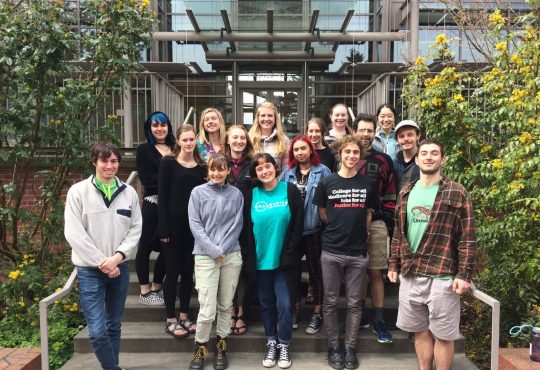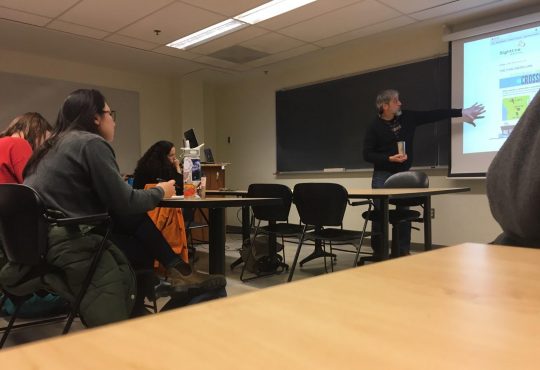Editor’s note: this is a response to letters in the Nov. 14 issue of The Trail.
To The Trail:
A few weeks ago, The Trail ran a series of articles arguing in favor of relinquishing the school’s investments in private energy companies to align with certain moral considerations. Unfortunately, I found these arguments rather unconvincing.
Most of the pieces rightfully assumed that protecting the environment is a major concern for UPS students. However, one needs to have a grasp of what our endowment entails, what investing means, and how protecting the environment falls into that equation.
The students in favor of divestment claimed that maintaining ownership stake in private energy to raise money was furthering environmental destruction.
Do these students not ride in cars or fly in planes? If they truly believed in their cause would they not forgo heating their dorm rooms? Should we all study by candlelight? It seems rather hypocritical to vilify an endowment fund that raises money to grant scholarships because it invests in companies they patronize regularly.
Subsequently, it was never made clear how removing our investments would lead to reduced fossil fuel consumption, or positively impact the development of sustainable energy sources.
Did you know that BP has spent more than 8 billion dollars developing alternative energy fuels since 2005? Chevron has spent more than 5 billion and Shell more than 2 billion. Exxon Mobil spent 600 million on a partnership with Synthetic Genomics to develop an algae-based biofuel. The same company has donated more than 100 million to Stanford’s Global Climate and Energy Project.
Yes, these companies produce oil, which can have long term effects on the environment, but refusing to invest doesn’t get us any closer to finding alternative means of energy nor does it stop people from continuing to use fossil fuels. It would, however, limit the success of our school’s endowment fund.
The world doesn’t rely on oil because it wants to harm the planet, it is simply because a competitive, sustainable alternative has yet to be cultivated as a realistic replacement.
But which companies would benefit the most from finding one? The same “fossil fuel” companies that we are being told to divest from.
Socially responsible investing is a great thing to practice when a small group shares the same principles, but a student body with diverse backgrounds doesn’t posses a singular view of what is socially responsible.
Despite being a strong advocate for environmental conservation, I believe that earning profit by owning stock in energy companies to provide financial aid and scholarships is socially responsible. Clearly we are at odds, though I doubt I am alone.
If this is the case, how can one group of students impose their blanket definition of social responsibility on our endowment, while my point of view isn’t also taken into consideration? How can we outlaw investing in companies that produce products that students use daily?
At the end of the day, the role of the endowment is to grow, so that it may continue to provide a world-class education for students. By maintaining a small portion of the fund in energy companies, they are able to achieve this goal.
For those of you who recently drove or flew somewhere for Thanksgiving break, consider this thesis: you valued travelling home or getting somewhere more than you valued reducing the revenues of fossil fuel companies.
Here is the same, the school values what it can provide with its fund greater than the unseen positives that would come from divesting.
It is hard to see how removing our funds would affect our environment or the corporations involved. Divesting from these companies would be nothing more than a faux symbolic gesture proclaiming that we do not approve of fossil fuels, despite the fact that we use them on a regular basis.
UPS is a university made up of differing opinions, and one version of socially responsible investing should not be imposed on all.
Sincerely,
Oliver Field






